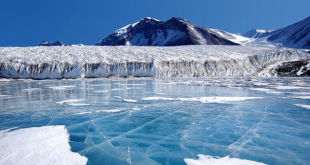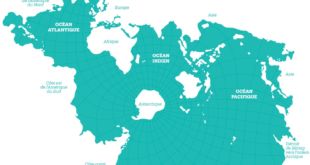The world’s fisheries are in crisis. The United Nations’ Food and Agriculture Organisation estimates 90 per cent of them have collapsed and China is the major player in their demise.
October, 2018
September, 2018
-
28 September
Wetlands disappearing three times faster than forests: study
Wetlands, among the world’s most valuable and biodiverse ecosystems, are disappearing at alarming speed amid urbanisation and agriculture shifts, conservationists said Thursday, calling for urgent action to halt the erosion.
-
27 September
Scientists link Southern Ocean’s rapid warming to human activity
Now, in a new study, scientists found convincing evidence that these trends are the result of two human influences: climate change from greenhouse gas emissions and the depletion of the ozone layer.
-
26 September
Climate change kills Antarctica’s ancient moss beds
Emerging from the ice for a brief growing season every Antarctic summer, the lush green mosses of East Antarctica are finally succumbing to climate change.
-
26 September
Finally, a world map that’s all about oceans
The Spilhaus Projection may be more than 75 years old, but it has never been more relevant than today. Even though it’s over 80 years old, this projection reminds us that saving the planet is pointless if we don’t also save the seas.
-
25 September
Distressing photographs show manta rays struggling to swim in a cloud of plastic waste dumped into the sea in Bali
Upsetting photographs show manta rays struggling to swim through a cloud of plastic waste dumped into the ocean at Manta Bay in Bali.
-
25 September
Over 150 scientists warn of Med ‘overfishing crisis’
More than 150 international scientists have signed NGO Oceana’s “Mediterranean Statement” urging the EU and its member states to end what it calls an environmental crisis in the Mediterranean, it said.
-
21 September
Climate change modifies the composition of reefs
Corals devastated by climate change are being replaced naturally by other species such as gorgonians, which are less efficient in acting as a carbon sink. A study by the ICTA-UAB analyzes for the first time why gorgonians are more resistant than corals to human impacts and global climate change.
-
20 September
Thawing permafrost may release more CO2 than previously thought, study suggests
The amount of carbon dioxide released from thawing permafrost might be greater than previously thought because of a process called mineral weathering, according to a new study by University of Alberta ecologists.
-
20 September
Microplastics may enter foodchain through mosquitoes
Mosquito larvae have been observed ingesting microplastics that can be passed up the food chain, researchers said Wednesday, potentially uncovering a new way that the polluting particles could damage the environment.
-
18 September
Bombay high court orders protection of mangroves
The Bombay high court on Monday ordered the protection of mangroves and a 50-meter buffer zone around such plots across the state.
-
18 September
Gulf of St. Lawrence may soon be unable to support marine life: study
The Gulf of St. Lawrence has warmed and lost oxygen more rapidly than almost anywhere else in the Earth’s oceanic waters thanks in part to climate change, raising the possibility that it could soon be unable to fully support marine life, according to a new study.
 Ocean Sentry
Ocean Sentry











